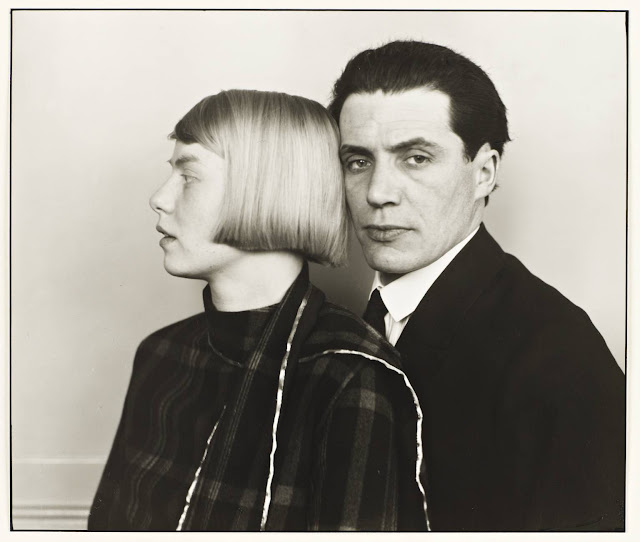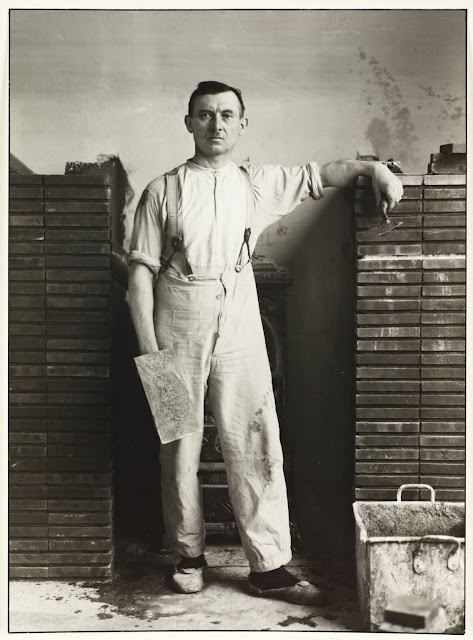 |
| "The Architect Hans Heinz Luttgen and his Wife Dora", 1926, August Sander, Tate Gallery |
AUGUST SANDER was a German photographer, active mostly between the two World Wars. His personal goal, unusual for the time, was to create a collection of 600 portraits of ordinary people in their environment, to be called "People of the Twentieth Century". Stopped short of completion by the chaos generated by Hitler, these photographs nevertheless stand as a wonderful portrayal of people captured simply but evocatively in the midst of their everyday lives.
One certainly notices how almost no one is smiling. Does this mean they are unhappy?
We tend to think in our culture that smiling is success. All those ads by banks, of customers smiling and looking into their laptops and presumably seeing how their investment portfolio is growing. For some reason they always have a coffee mug beside them. The smiling face is ubiquitous in our culture, at least in the media.
Do the people in Sanders photographs look grim? Or meditative and thoughtful? How would the photos look if they were smiling?
Old portraits, whether photographic or in oil, almost never had smiling people. So when did "Say Cheese!", first raise its smiling head.? When did we start to equate not smiling with being unhappy or grim? When did the mystery in another's eyes become hidden behind a generic, forced expression?
The film Baraka has many wonderful shots of people gazing into the camera, unsmiling. Stare into the faces of Sander's subjects, and the initial sense of a grim look dissolves. There's something soulful, moving, about looking into the eyes of another human with no reference to any emotion or communication. Just experiencing each other's existence in a moment of present being.
 |
| "Master Mason", August Sander, Tate Gallery |
Thought provoking and well-written. I love the "Master Mason" photo. I think it wold be much less effective with a cheesy grin. He appears to feel the weight, and value of his work.
ReplyDelete